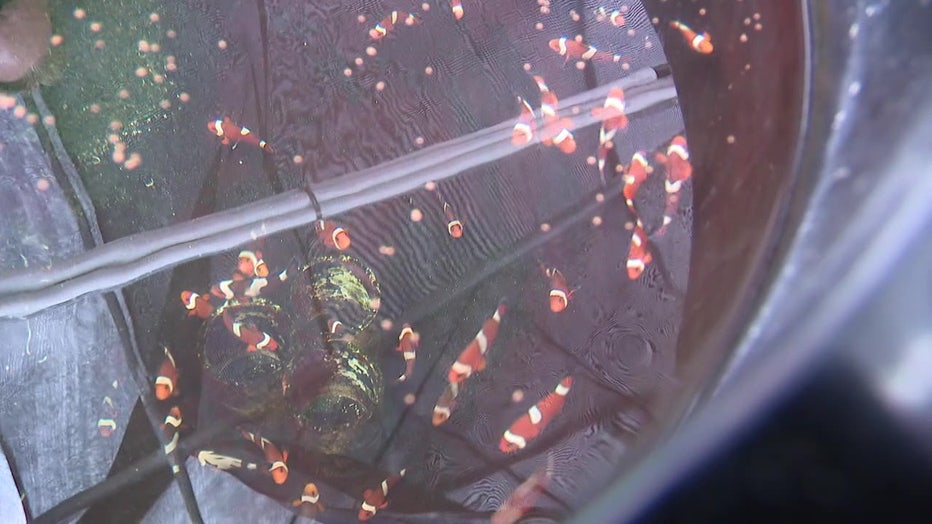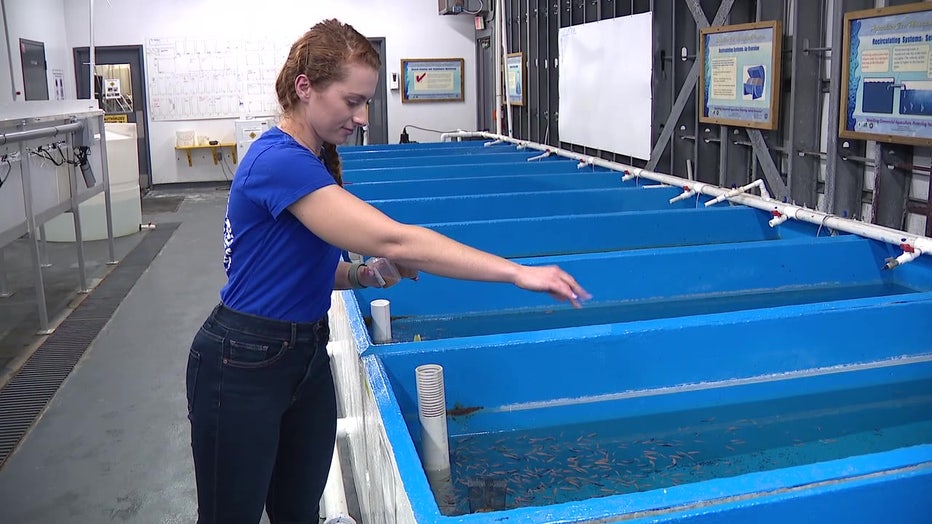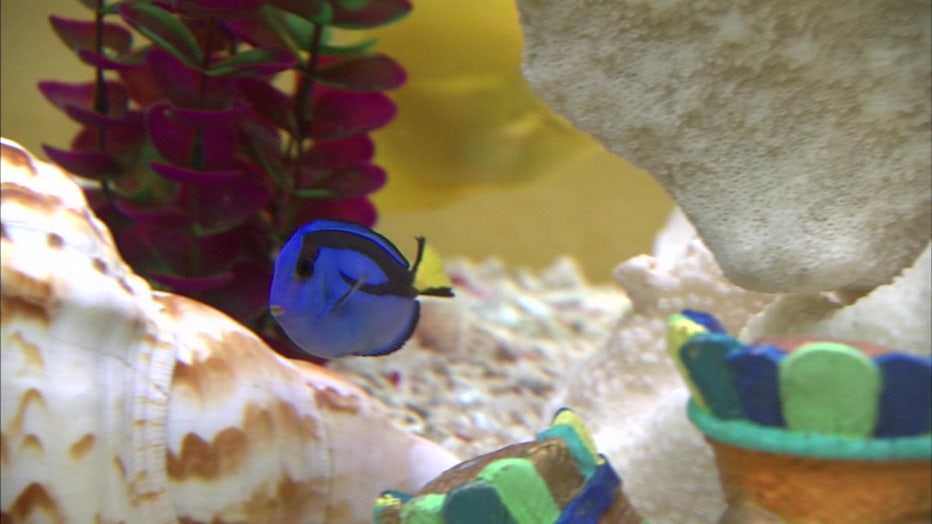Ruskin scientists help protect Bay Area’s multi-million dollar tropical fish industry - FOX 13 Tampa
Expanding Tampa Bay area's aquaculture
Lloyd Sowers reports
RUSKIN,Fla. - The Bay Area is one of the biggest suppliers of tropical fish in the world and a group of scientists in Hillsborough County are on a mission to make sure they are the healthiest and prettiest in the world.
There are more than 100 fish farms across the area that sell millions of dollars of tropical fish every year. Most are shipped from Tampa International Airport in the bellies of airliners.
"I started off as a kid with a saltwater tank," explained Casey Murray, a scientist at the University of Florida's Institute of Food and Agricultural Sciences Aquaculture Laboratory in Ruskin.
Now, she could write a book on clownfish.

Clownfish swim inside a tank at the University of Florida's Institute of Food and Agricultural Sciences Aquaculture Laboratory in Ruskin.
Scientist Sarah Hutchins studies algae and plankton at the lab.
"Essentially we're trying to recreate this fish's natural habitat," said Hutchins. "Different colored lights affect the plants differently as does the light spectrum in the wild."
RELATED: Aquaculturist educates fish farmers about Florida's booming $172 million industry
Scientists share everything they learn with Florida farmers who raise tropical fish, both freshwater and saltwater varieties.

A researcher feeds fish at the University of Florida's Institute of Food and Agricultural Sciences Aquaculture Laboratory in Ruskin.
Using microscopes, the researchers can identify diseases before they can kill valuable fish.
"Some of the farms we've been able to help have documented $1 million or more in savings based on our work," scientist Roy Yanong stated.
RELATED: University of Florida's aquaculture lab in Ruskin focuses on keeping fish farms successful
They even study amphibian invaders like the non-native tropical clawed frog.

Ponds at at the University of Florida's Institute of Food and Agricultural Sciences Aquaculture Laboratory in Ruskin.
"We use this chamber to test the thermal tolerance of this frog," explained scientist Quenton Tuckett.
With that data, scientists can predict where non-native invaders could survive in Florida. Scientists can similarly test different varieties of tropical fish to help determine what kind of threat they might pose if a consumer were to release them into the wild.

A tropical fish swims inside a tank at the University of Florida's Institute of Food and Agricultural Sciences Aquaculture Laboratory in Ruskin.
Scientists are even working to solve a possible shortage of sea monkeys, which are used as fish food.
"The farmers are concerned about how they're going to feed those baby fish going forward," shared Matt DiMaggio, director of the University of Florida's Institute of Food and Agricultural Sciences Aquaculture Laboratory. "So we're trying to find alternative feeds."

A clownfish swims in a tank.
For these scientists, it's a workplace full of fish.
"All of these fish are super popular if you walked into your local pet store," said DiMaggio.
Comments
Post a Comment